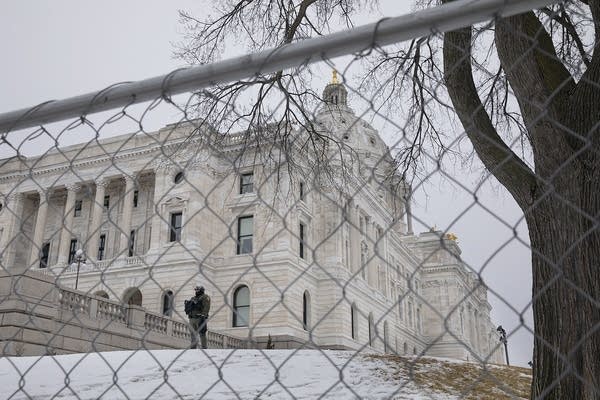COVID relief, security for upcoming trials: Walz budget items require quick action

Go Deeper.
Create an account or log in to save stories.
Like this?
Thanks for liking this story! We have added it to a list of your favorite stories.
Urgency surrounds parts of Gov. Tim Walz’s budget meant to help people and businesses recover from COVID-19, students to make up for academic setbacks and security officials to guard against civil unrest during upcoming police trials.
The Legislature isn’t known for speed on the state budget. If the past is any guide, lawmakers will wait until the very end of session in May to decide how $50 billion or more are allocated.
That’s usually not a big problem because the next two-year budget won’t kick in until July. But there are a raft of proposals in the Walz plan where time is of the essence, including another shot of aid to small businesses that had to close or scale back during COVID-19 spikes.
“We cannot let up on immediate economic relief for businesses affected by the events of the last year. We are not out of the woods yet. And many Minnesota businesses do face some lean months ahead,” said state Employment and Economic Development Commissioner Steve Grove, who added that while more federal money might be in store for businesses hit hard by the pandemic, quick approval of additional state help is a must.
Turn Up Your Support
MPR News helps you turn down the noise and build shared understanding. Turn up your support for this public resource and keep trusted journalism accessible to all.
“One of the key proposals of the governor’s recovery budget is to put another $50 million into a forgivable loan program for businesses affected by COVID-19, particularly those hospitality businesses that have been the most hurt — with specific carveouts for businesses who face the biggest uphill climbs,” Grove said.
Senate Majority Leader Paul Gazelka, R-East Gull Lake, wouldn’t commit to quick consideration of the relief money but didn’t rule it out either.
“We’ll just have to play that by ear,” he said.
In all, he Walz administration hopes to get about $176 million out the door soon.
Apart from the business aid, the other big chunk is for summer education programs.
A year of distance learning for most children has raised fears that some have fallen behind and won’t catch up without intervention.
“There has absolutely been learning loss due to COVID. And there’s summer learning loss whether COVID is happening or not,” said Kari Denissen Cunnien, who runs the nonprofit Ignite Afterschool. It collaborates with school districts and organizations that offer enrichment programs outside of normal school hours.
“I have deep concerns about ensuring that young people are ready to take on the next year level of school work,” said Denissen Cunnien, who was elated to see a Walz proposal for about $60 million to enhance summer school offerings and provide mental health services to children of all ages. But those will take time to ramp up.
“School districts do need to start bringing folks together now to be planning for summer and putting together the partnerships with community-based organizations to make this happen and to think about staffing,” she said. “Teachers have been working really hard and this is an ‘all hands on deck.’”
Aspects of the summer school proposal simply seek legislative approval to use federal aid.
House Minority Leader Kurt Daudt didn't sound sold on the measures out of the gate, questioning why the state would be involved.
“That’s a local choice and if local school districts feel like they need to put kids in summer school or want to, we certainly would let them do that,” Daudt said.
Another major Walz ask is $25 million to provide one-time payments to more than 32,000 families in the state’s welfare program.
Enrollment has grown in the Minnesota Family Investment Program as the pandemic drags on, and the financial squeeze isn’t abating. The payments of up to $750 could go out within weeks, once the Legislature approves.
The governor and his team also have their eye on the courthouse. One former Minneapolis officer facing murder charges in George Floyd's death goes on trial in March, and authorities are bracing for potential civil unrest after the verdict.
Walz wants lawmakers to provide $2.7 million now for the State Patrol’s planned response to keep protests from devolving into riots as happened last spring.
Another $1.5 million would offset the cost of having 125 Department of Natural Resource officers assigned to security details during the Chauvin trial, according to agency budget documents.
Another National Guard callup would add millions more on top of that.
And those costs could be just a down payment. Three other former officers charged in the Floyd case are set to go on trial toward the end of summer, when the entire new budget should be in place.
For the first phase, Col. Matt Langer of the State Patrol said he'll be calling in troopers from around Minnesota for weeks.
"Our plan is predicated on prevention. In order to do the prevention successfully, we need staff here," Langer said, adding that planning has been in the works for awhile on how to head off any trouble. "Our goal would be that at the end of this experience that we’ve spent a lot of money to prevent anything from happening."


